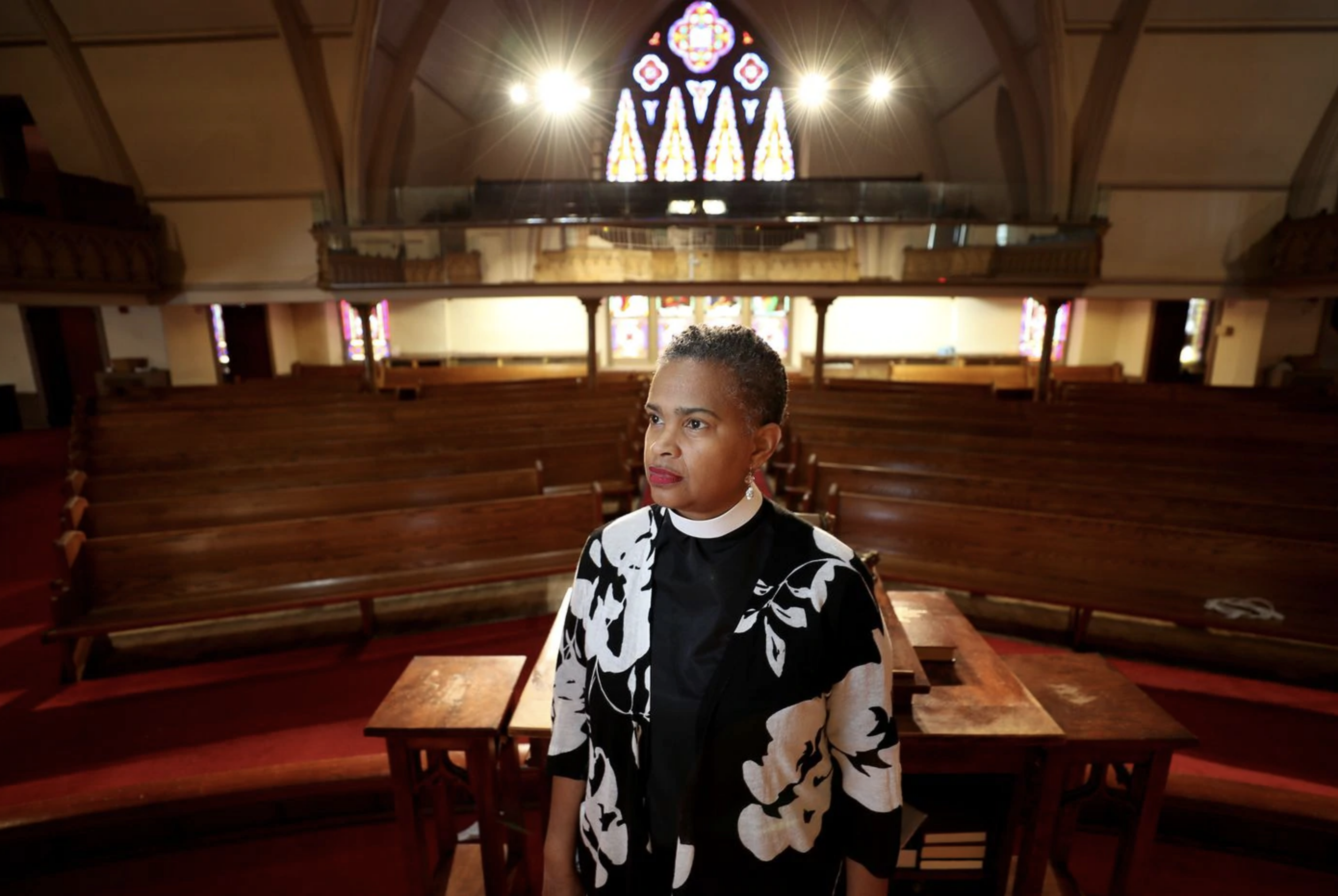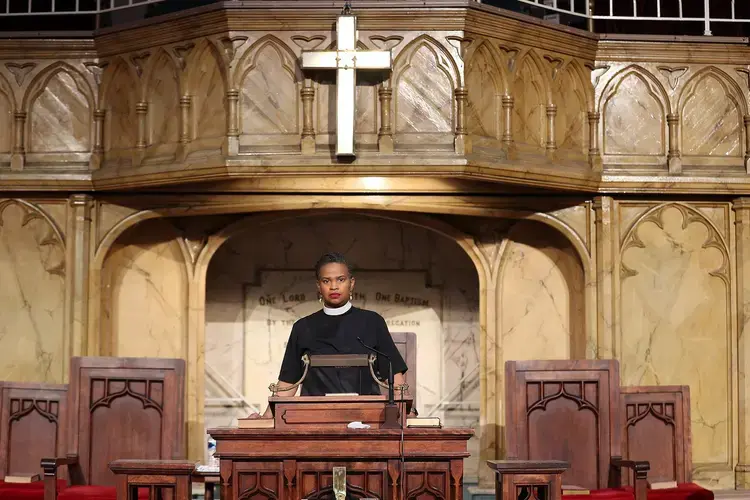
The Rev. Leslie D. Callahan recalls thinking weeks ago that the hardest part about this year’s Lenten season would be sticking to her fast.
She watched news reports of the spread of the coronavirus in other countries, but assumed the disease wouldn’t disrupt her country, her community, and her congregation in the same way.
By March 22, the day before Pennsylvania Gov. Tom Wolf issued a stay-at-home order for counties across the state, Callahan found herself standing in the pulpit of St. Paul’s Baptist Church in North Philadelphia, preaching a sermon — to a sanctuary empty of nearly everyone except essential staff — on how wrong her assumptions were.
“While I don’t believe God sent us this terrible plague to tap us on our shoulders, I recognize that God can use the things in our lives,” she said.
A month into the pandemic that has transformed American life, Callahan, the 130-year-old church’s first female pastor, is navigating how the crisis is transforming the worship experience for her membership. The head of a flock of about 400 — mostly black but diverse in age, class, and gender — she sees much of her ministry now through the lens of the coronavirus.

By the next week, she had made the decision not to gather in the sanctuary. The church held its first coronavirus-era service on the video-conferencing application Zoom, with staff in the building standing a safe distance apart. Callahan solicited prayer requests through text messages and email.
“I’m going to have some time on my hands,” she joked. “Somebody say Amen!”
“Amen!” Someone on the Zoom call shouted. Thanks to technology, the call and response so familiar in the black church was alive and well.
Callahan’s Lenten message — which came to her before the pandemic arrived — was about divine disruptions, a theme made more prescient by current events.
“For many of us, we’re in the depths … the conflict, the contagion, the fear piling on,” she preached in her first service from her living room on March 29. “When we’re in the depths, we cry out. Everything can turn in a moment.”
Amid her church duties, Callahan is like other working parents, trying to educate her 7-year-old first grader, Bella, at the kitchen table along with writing sermons, meeting with deacons, and holding prayer calls. For her, the experience calls to mind a couple of scriptures: Psalm 46 — “God is our refuge and our strength” — and Proverbs 11:14, which says that in the multitude of counselors, there is safety.
“I feel like, as a black woman, we just do what we’ve got to do,” Callahan said. “Who has time to think about how I feel about this?”
Each Sunday and the days in between are an exercise of faith and works, often requiring increasing creativity. Callahan and her staff have called every member to do what she describes as “wellness checks”: Has your job ended? Do you have access to food? Can we do your shopping? What kind of technology do you have? Do you know how to use it? How can we pray for you?
“We’ve been in better touch in some ways because we’re actually calling every member — not just the ones on the sick-and-shut-in list,” Callahan noted. The virus hasn’t hit her congregation yet, she said, but she has known people who have had it and survived.
To the extent that she can, Callahan tries to re-create the St. Paul’s experience for members. For Palm Sunday, the church mailed palms to members. Unlike the many people working from home in their pajamas, Callahan dresses in her Sunday best for video conferences. Services have become more sophisticated with each passing week, featuring photos evoking memories of when the congregation worshiped under the same roof, and musical selections from Christian artists from Philadelphia and beyond.
“I miss the gathering for worship, I miss seeing people. I miss the things that happen when we are together, and I miss the sounds that we make when we are together,” Callahan said. “I look forward to hugging the necks of my congregation members.”
She knows that won’t happen on Easter, and said that “under no circumstances” would her congregation meet in person this week.
“I feel as a leader, I have a responsibility to do what I believe is the right thing and the healthiest thing for the people,” she said.
She also spends time thinking about St. Paul’s survival, soliciting tithes and donations on social media and during online services. Callahan said she’s considered cutting her salary until the pandemic ends to help make payroll. But she added that she focuses not on whether the church will survive, but how.
“I have confidence in God and in our people,” she said. “We’re going to have to be our own stimulus. But I have to believe that if our people are all right, we’ll be all right.”














